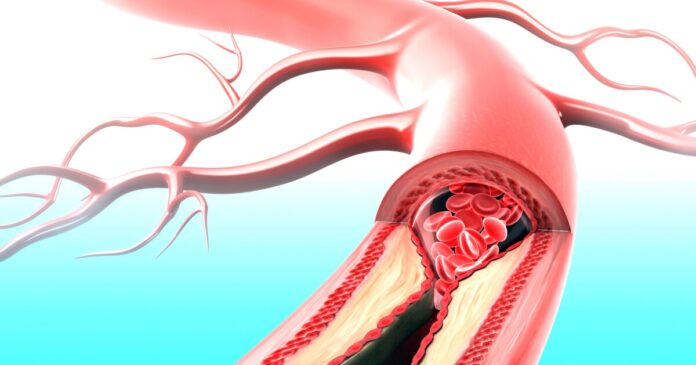A promising “two-in-one” experimental drug could tackle both type 2 diabetes and heart disease by slashing cholesterol and inflammation, potentially offering a powerful new way to protect the heart and improve metabolism.
Globally, the number of new cases of type 2 diabetes (T2D) is rising rapidly; it’s projected that by 2050 the condition will affect 1.31 billion people. Meanwhile, cardiovascular disease is the leading cause of death worldwide. Commonly, the two go together.
New research, a collaboration between Monash University in Australia and Leiden University Medical Center (LUMC) in the Netherlands, has tested the effectiveness of an experimental drug called IC7Fc in treating mouse models of cardiovascular disease. The drug has already proven effective at improving glucose metabolism and preventing weight gain.
“Our earlier studies showed IC7Fc could help manage type 2 diabetes, a metabolic disease,” said Professor Mark Febbraio, who led the research on behalf of Monash Institute of Pharmaceutical Sciences (MIPS). “This new research shows it can also reduce atherosclerosis, meaning it slows the ‘clogging’ of the arteries, where fatty deposits build up and restrict blood flow to the heart.”
IC7Fc is a lab-engineered protein designed to mimic the natural signaling of a body chemical, or cytokine, called interleukin-6 (IL-6) – but only its good side. IL-6 normally helps regulate metabolism and repair tissue, but it also causes harmful inflammation. IC7Fc activates only the pathway linked to beneficial effects, such as improving metabolism and cell survival, while avoiding the “classical” pathway that drives inflammation. In short, IC7Fc aims to keep the good effects of IL-6 without the bad ones, helping cells work better under stress.
The researchers tested IC7Fc in female mice that had been genetically modified to have human-like cholesterol metabolism and to easily develop atherosclerosis, a fatty plaque build-up in arteries that’s associated with heart disease. Mice were fed a high-cholesterol “Western” diet for seven weeks. Some received IC7Fc injections twice a week; others got a statin (a cholesterol-lowering drug called atorvastatin), or both IC7Fc and a statin, or a placebo. Blood triglycerides and total cholesterol were measured, along with plaque area and composition in arteries, liver activity, especially how it produced or cleared fats and cholesterol, and inflammation markers in tissues and blood.
IC7Fc sharply lowered blood lipid levels, far more than statins did. Cholesterol dropped because of the effects of IC7Fc. Namely, it reduced new fat production in the liver (de novo lipogenesis), decreased the secretion of very low-density lipoproteins (VLDL), considered a “bad cholesterol,” and increased bile acid production, which uses up cholesterol. IC7Fc didn’t block cholesterol absorption from food, but shifted the liver’s metabolism to burn or recycle more cholesterol into bile acids. It also suppressed genes involved in fat production and the exportation of VLDL.
Mice given IC7Fc had around 84% smaller atherosclerotic lesions than controls. And the lesions were more stable, the kind less likely to rupture and cause heart attacks. The arteries of treated mice showed fewer inflammatory markers, and this anti-inflammatory effect seemed to be localized to the vessel walls, not widespread in the body. Treated mice had lower insulin levels, suggesting a secondary metabolic benefit.
The authors note some limitations to the study. Principally, it’s an animal study; human trials are needed to confirm safety and effectiveness. Additionally, the treatment period was short (seven weeks), so long-term effects on liver health and immunity are unknown.
In the previous study, IC7Fc was found to reduce appetite and body fat in obese mice. In the present study, the drug’s effects were seen in lean mice prone to high cholesterol and atherosclerosis. The researchers say that the findings taken together are very promising.
“These results suggest IC7Fc could offer a dual benefit – helping reduce obesity in some, while protecting the heart in others,” Febbraio said. “It’s an exciting step towards a treatment that targets both metabolic and cardiovascular disease.”
The study was published in the journal Science Advances.
Source: Monash University


